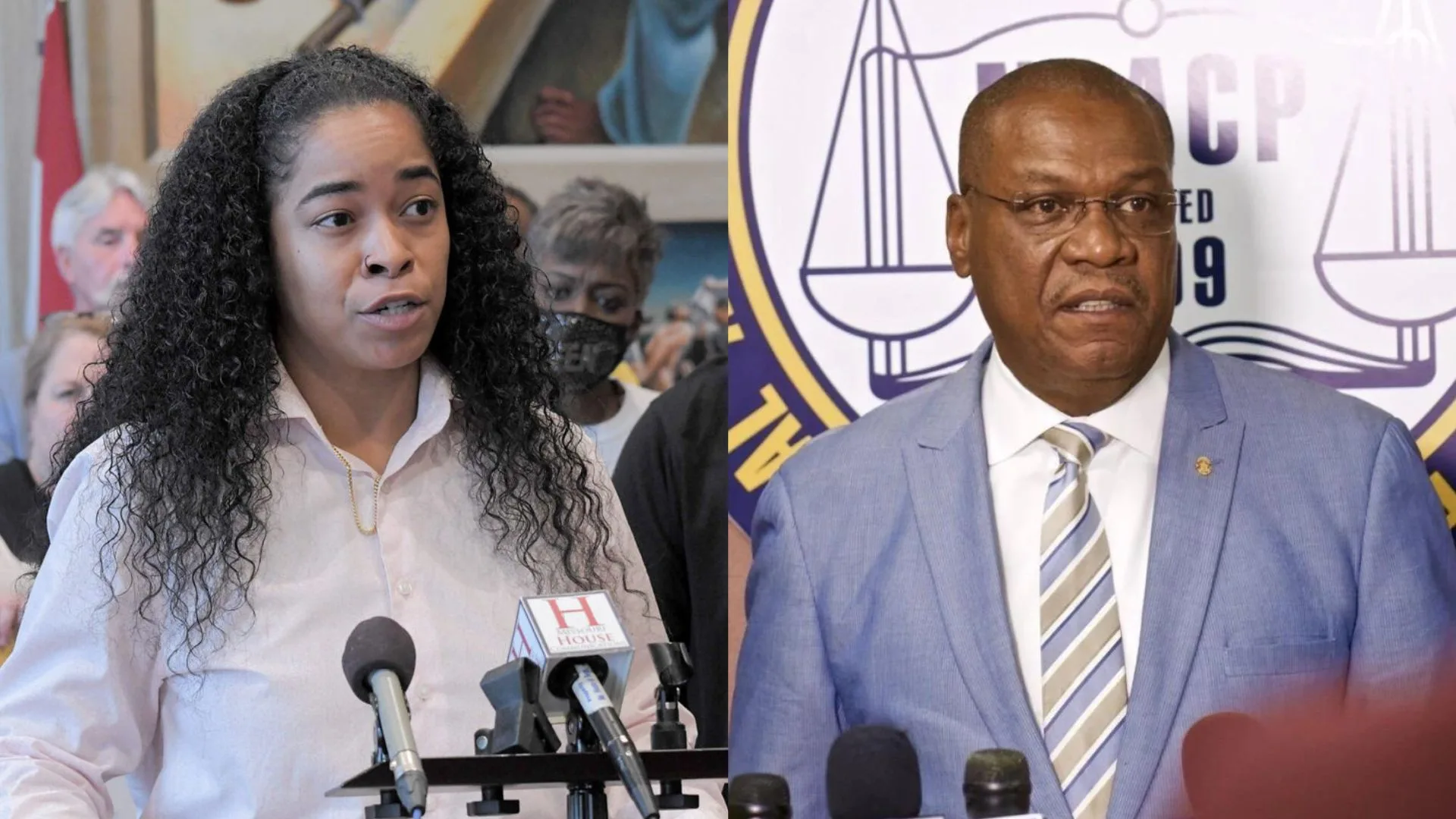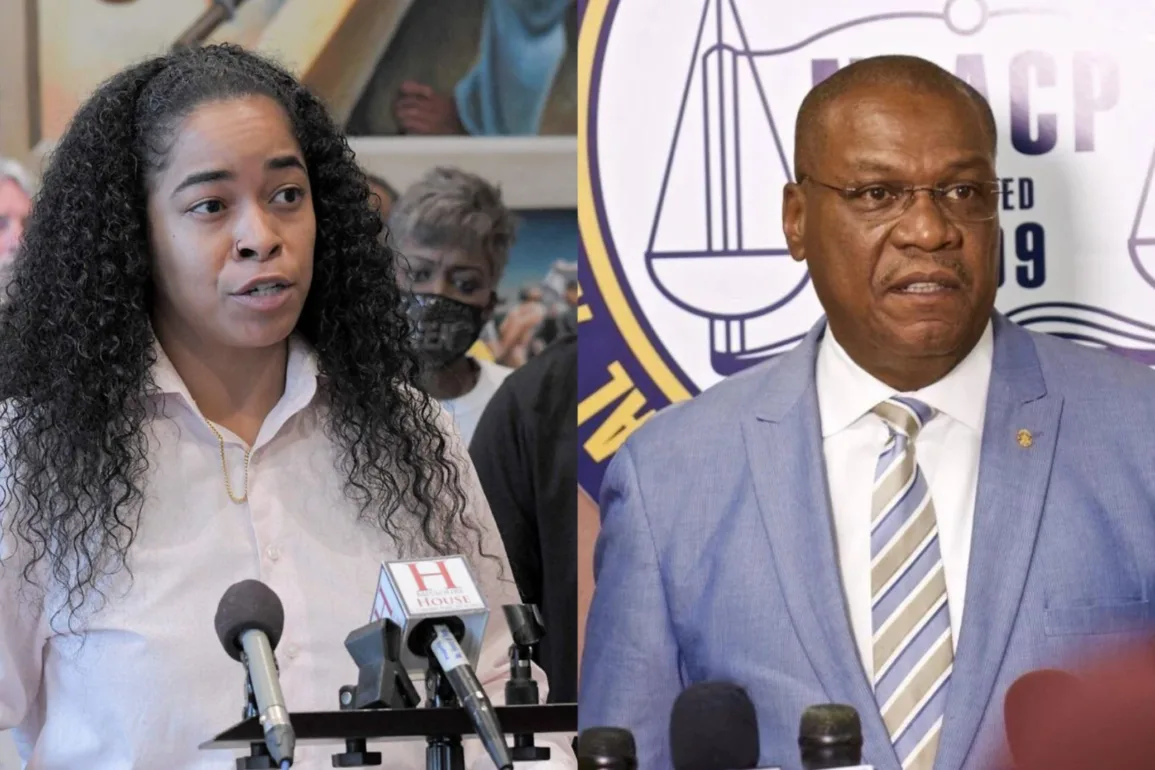
When it comes to racial equity, state Rep. Ashley Bland Manlove of Kansas City and St. Louis City NAACP President Adolphus Pruitt typically land on the same side.
But on Amendment 3— the constitutional amendment that legalized recreational marijuana in November — they couldn’t be further apart.
On Monday morning, they both appeared on KCUR 89.3’s Up To Date to talk about the lack of racial equity among marijuana-business license holders in Missouri. Both agree that Black communities have long felt the brunt of marijuana criminalization, so Black business owners should be able to benefit from Missouri’s soon-to-be billion-dollar industry.
But where they clashed was whether or not the state’s new “microbusiness licenses” program, a provision in Amendment 3, can bridge that gap.
These are small-business licenses “designed to allow marginalized or under-represented individuals to participate in the legal marijuana market,” according to the state website.
Even with the microbusiness program, Bland-Manlove believes the new law cements in place an already distrusted, inequitable business licensing system established when medical marijuana was approved in 2018. Yet Pruitt’s fervent support for the program and other the equity measures in Amendment 3 – including expungements of past marijuana offenses — shows there’s still a strong divide among social justice leaders on how the recreational marijuana law will impact Black Missourians.
Listen to KCUR segment:
Audio Player
Steve Kraske, who hosts the daily public affairs show on Kansas City’s NPR station, asked Bland Manlove if she believes “the lack of representation” will be addressed through the microbusiness program.
She responded that the issue wasn’t addressed in the medical marijuana program, “so I don’t see it being addressed here. It’s the same people who wrote it, so I don’t see it being fixed at all.”
Pruitt countered that the equity efforts weren’t limited to the microbusiness piece.
“It’s about expungement,” Pruitt told Kraske. “It’s about leveling the playing field…I just don’t want us to reduce Amendment 3 and the benefits of Amendment 3 to one particular section.”
The discussion comes as the Missouri Department of Health and Senior Services begins accepting applications for the microbusiness program on Thursday. The application period runs through Aug. 10.
There are seven categories where people can qualify for a microbusiness license, ranging from a lower income level or living in an area considered impoverished to having past arrests or incarcerations related to marijuana offenses.
“The microlicensing program is as simple as this,” Pruitt said during the KCUR discussion. “If you were impacted by the unjust laws as relates to the war against drugs, whether you were arrested (for a marijuana offense), whether your mother or father was arrested…you’re eligible.”
He also noted people who live in Census tracts where 30% or more of the population is below poverty and where the unemployment rate is 50% higher than it is for the state level are also eligible to apply for a microbusiness license.
A person can also apply if they have a service-connected disability card from the U.S. Department of Veterans Affairs.
Bland Manlove said her biggest concern is the restrictions on microbusiness wholesale facilities. Under the constitution, they can only cultivate up to 250 flowering marijuana plants.
“If you translate that into pounds and dollars, that’s only clearing about $250,000 a year,” she said. “That’s not enough for a business to run on.”
She also said micro-dispensaries can only sell products from microbusiness growers.
“Therefore, they have to wait until the other micro [cultivators] grow up their plants and then they can put it into the dispensary,” she told KCUR listeners.
Ownership is another point of concern, she said, because the only person who has to meet the eligibility requirements is the “majority owner,” or the person who has more than 50% of the financial interests or voting interests.
“That leaves a lot of room for other people to come in on the backside,” she said, “people who are already in the industry, people who are not of color.”
Another category she said leaves the door open for someone other than underrepresented individuals to benefit from the microbusiness licenses is the historic incarceration rate. People can apply if they live in a ZIP code that has an incarceration rate of marijuana offenses that’s 50% higher than the rate for the entire state.
DHSS listed these ZIP codes in the new cannabis regulations that go into effect on July 30.
However, when DHSS tried to compile this list, they ran into trouble finding a state agency that tracked the ZIP codes of where people incarcerated actually lived, Abigail Vivas, who oversees the microbusiness program through DHSS, said at a June outreach event.
The closest the state came, Vivas said, was identifying the ZIP codes for the courts where people’s cases were handled.
In the St. Louis area, there were three geographic ZIP codes DHSS identified: downtown St. Louis, which is among the least residential areas in the city, and downtown Clayton, among the most affluent suburbs in the region where the average household income is $200,000. And the last one is for St. Charles, where the population is 90% Caucasian, according to the census.
“The majority Black populations in Missouri were missed on that map of qualifying places,” Bland Manlove said, regarding this category.
Pruitt said he believes the map showing Census tracts with high poverty and unemployment should make up for the lack of available information for incarceration rates.
However, Pruitt previously told The Independent that if someone who lives in these ZIP codes applies solely on this eligibility requirement and wins a license, then the NAACP would legally challenge it because the addresses of courthouses don’t reflect actual residence, which is required under the constitution.
In August, six license winners will be picked by the Missouri Lottery in every one of the state’s eight Congressional districts in Missouri — for a total of 48 licenses (16 for dispensaries and 32 for wholesale facilities.) DHSS will issue an additional 48 in 2024, and another 48 in 2025.
Vivas estimates there could be up to 5,000 applicants statewide this year. But she’s heard other estimates that it could be 1,000 per congressional district.
“That’s just an abysmal number,” said Bland Manlove, regarding the 48 licenses. “It should be a lot more than that. I’m running in my head how many Black dispensaries we have now, and I can only think of one which is actually over on the St. Louis side.”
According to DHSS, there are currently 59 cultivation facilities, 207 dispensaries and 75 manufacturing facilities that hold “comprehensive” cannabis licenses. The state does not track demographic information of license holders, but Vivas said in June she would push for the department to conduct a voluntary survey for this information.
By law, the state cannot issue any new comprehensive licenses until June 2024. Pruitt noted that if the state decides to allow for more regular licenses in the future, then 50% of them must go to microbusiness license holders.
“What we hope is going to happen is craft growers who want to come and get these licenses, they’re going to brand their own product,” Pruitt said. “They’re going to do all sorts of special and unique things. And then they’re going to… hopefully grow into a comprehensive license. That’s what this is all about.”
GET THE MORNING HEADLINES DELIVERED TO YOUR INBOX



